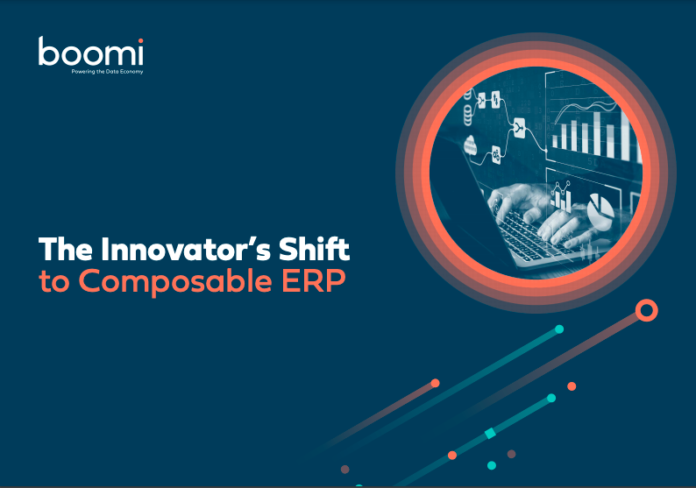More than nine out of 10 (94%) firms worldwide are embracing a Composable Enterprise Resource Planning (ERP) strategy to overcome the limitations of legacy applications and modernise their businesses to gain a competitive market advantage, a new survey from Boomi reveals.
Conducted by Coleman Parks, the independent survey of 1,675 CTOs and enterprise architects — including 300 from Japan, Singapore, Hong Kong, Malaysia, and the Philippines — shows companies are keenly aware that their legacy ERP systems are struggling to keep pace with business today.
As traditional integration solutions require expensive, time-consuming custom development coding, optimisation and automation is a high priority to IT teams today.
This is shown by 76% of survey respondents investing in standardisation and consolidation of applications, and 72% modernising applications and migrating to the cloud.
“Perhaps the biggest challenge every business faces today is unifying their increasingly fragmented digital ecosystem so they can create the seamlessly integrated experiences that customers, employees, and partners now expect,” said Chris McNabb, CEO of Boomi.
“The organisations that are removing that friction through fast, intelligent integration and workflow automation are the ones best positioned to thrive as we move beyond the pandemic,” said McNabb.
In the survey, 51% of respondents said providing the best user experience possible was the motivation behind adopting integration technology. Yet 47% indicated their current integration solutions struggle to meet their challenges.
Also, 42% say there is a high cost to maintaining these solutions, with 38% finding that they can’t cope with their complex hybrid technology environment.
Further, 95% of respondents in Asia say they are adopting a Hybrid Integration Platform (HIP) strategy to gain the flexibility to integrate applications and data wherever needed.
Benefits of modernisation by moving their ERP suites to the cloud are improving business efficiency (38%), increasing IT agility (35%), and driving business growth (32%).
“This data highlights that as organizations increasingly lean on digital technologies for operational resilience, many are finding themselves needing hybrid integration capabilities to ‘stitch together’ their new technology investments, and subsequently enable data intelligence for departments, teams and customers,” said Ajit Melarkode, VP of Asia-Pacific and Japan at Boomi.
















